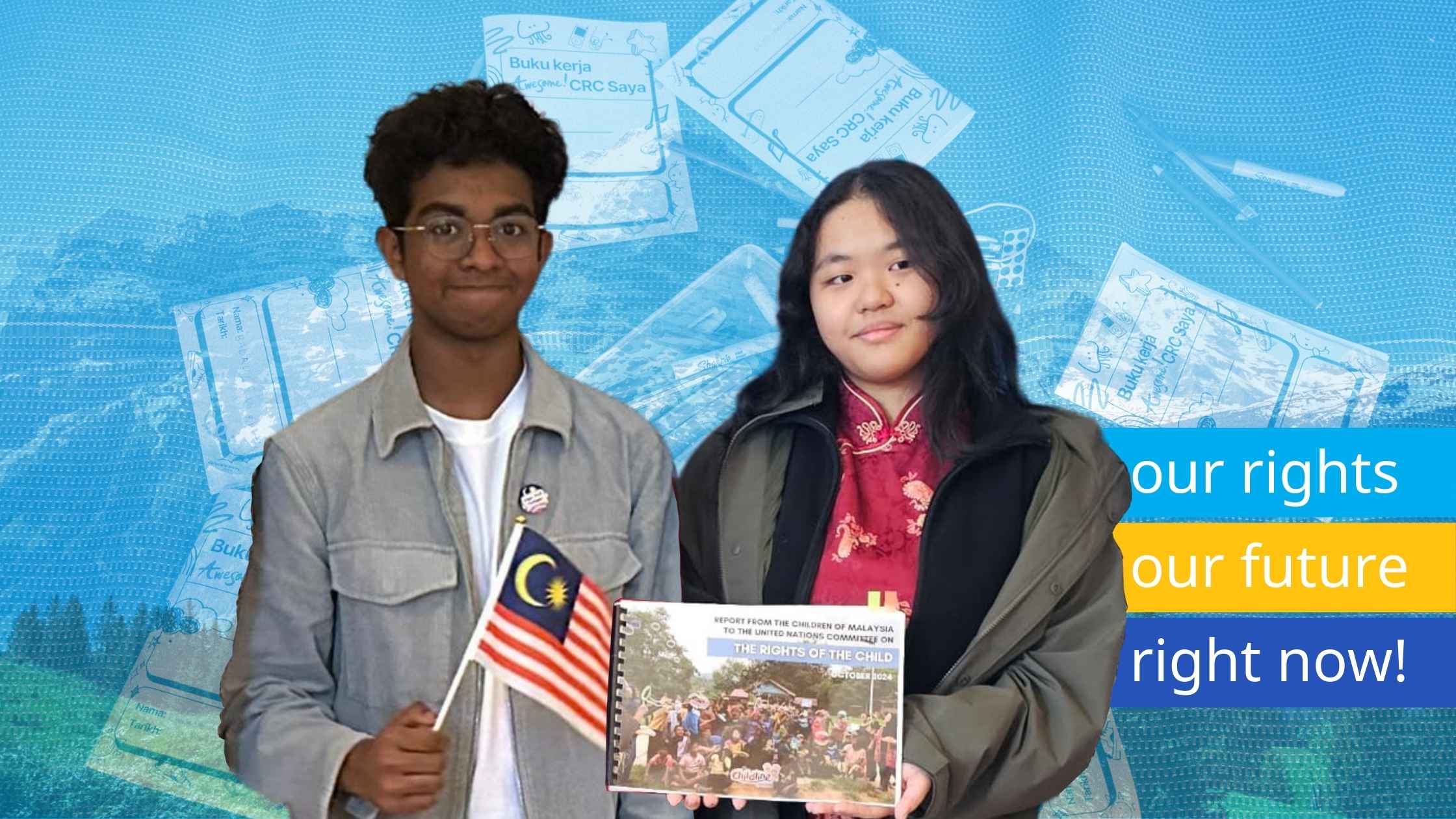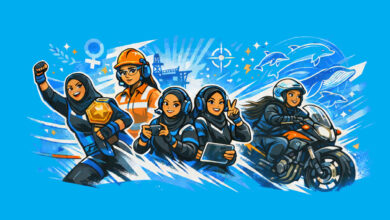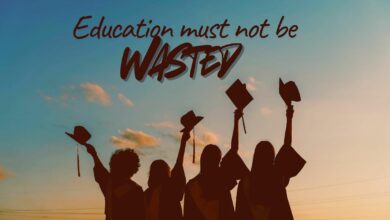Switzerland! Have you ever been there? Cause we hadn’t, but for our first experience it was extremely cold we almost froze our toes off! But we went there on a mission: to present Malaysia’s first Convention on the Rights of the Child (CRC) Children’s report at the 100th Pre-Session of the Committee on the Rights of the Child! It wasn’t easy. We would have to go through countless reports and messy meetings but … well, read on to see how our voices matter!
We received the news on New Year’s day. Crazy right?! We were thrilled and honoured to be selected to go to Geneva, Switzerland to present the CRC Children’s Report. It felt surreal! Finally, a chance to have our voices heard in an adult-centric world!
Malaysia’s CRC Children’s Report
Did you know that 321 children participated in Malaysia’s first ever CRC Children’s Report? And both of us were among them. The consultations gathered diverse views, ensuring a broad representation of children’s voices.
Eight locations were chosen for the consultations ranging from urban to rural Malaysia. Like Kuala Lumpur and Georgetown; as well as Royal Belum and Dalat!
Children with disabilities, including those who are deaf, blind, or have learning disabilities were also included. This diversity shows that our voices matter no matter what our backgrounds are.
This report covered many issues but five stood out for us.
No Discrimination
One of the key principles in the CRC is non-discrimination. Yet, discrimination still happens, especially in schools.
Despite Malaysia’s reputation for racial harmony, racism is still a problem. Worse, it’s often ignored. This is what we call institutionalized racism – when discrimination becomes so normalized that we stop questioning it. Even when it is brought up, our voices get turned away as if our voices don’t matter!
Health & Mental Health
One image stayed: a girl in Royal Belum holding only a plate of rice and fish. Sometimes, that’s all rural kids eat in a day as food access remains a harsh reality. Healthcare is also unfair with rural youth lacking hospitals, doctors, and basic care. Undocumented and refugee kids suffer more, with no rights to free healthcare.
Mental health issues, however, affect youth more equally, regardless of place or status. The report found 25% of teens (aged 10-16) depressed and 10% having attempted suicide. If mental health seems unimportant, remember suicide is the second leading cause of death for adolescents today. A major factor is the lack of safe spaces and stigma stopping youth from speaking openly in Malaysia.
If we, as young people, don’t break this generational cycle, who will?
Disability & Inclusion
Hey, Jessie here! If you don’t know already, I’m a CODA (Child with Deaf Adults)! Disabilities are still a taboo thing in Malaysia. I have seen disabled individuals being isolated or treated differently just because they have a disability. This often happens in schools, neighbourhoods, and society itself – even though disabilities aren’t contagious!
My mother told me something that changed my perspective:
“Inclusion isn’t about including disabled people into normal people settings, it isn’t having an interpreter to help with communication. Real inclusion is when people take the effort to learn sign language or learn ways to communicate with deaf individuals or cater to the needs of a disabled person.”
Family Environment & Alternative Care
Since we’re kids, one of the most important things is family or guardians. For children with unsafe homes, many turn to social workers or shelters for support.
I, Sean, was a foundling and lived in two shelters before adoption. Like others in this report, I know the flaws firsthand. Malaysia’s alternative care system is broken, and the Social Work Profession Bill still hasn’t been passed to protect children properly.
Because of that, serious problems continue. We’ve all heard about GISB, where more than 600 children were abused before being rescued. Without urgent reform, GISB won’t be a one-time tragedy — it will keep happening.
A safe, loving family is a child’s first line of defense. When that’s gone, what happens to us, the children of Malaysia?
Education
We all have our own struggles with school, right? But let’s be real – urban and rural students face way different challenges, and both are a big deal!
Urban students deal with insane workloads, sky-high expectations, and the pressure to ace everything while staying trendy. It’s like a never-ending race we can’t escape!
Meanwhile, rural students literally risk their lives just to get to school – walking for kilometers, crossing rainforests, and dodging wild animals. Imagine going through all that every day!
And what about our voices? We should have a say in our homework, rights, and standing up for ourselves. How can we change the future if no one listens now?
We want to know…
As kids, we had this crazy thought – if we could ask the Malaysian government just three questions, what would they be? Our brains went into overdrive! I mean, how do you pick just three when there are literally millions we could ask? But somehow, we did it!
- Why is there no dedicated, anonymous hotline for children to seek professional help and support?
- How does the government plan to integrate children with disabilities into schools and society, utilizing advancing technology to support their inclusion?
- How can education be mandatory if it remains inaccessible? The government aims for nationwide education, yet many children still struggle to reach schools.
But … we’d like to know, from your view … As a young person of Malaysia, what would YOU ask the government? Remember, change starts with speaking up after all, our voices matter.
Let us know in the comments and please feel free to reach out to us, let’s make a better and brighter future for all Malaysian children together!
And check out the Children’s UNCRC report for yourself, there’s loads more to be covered!
READ >> Why Participation Matters





The inclusive outdoor classroom addresses some of the challenges raised. We would like for the team at UNICEF visit us. Kudos to Jessie who is a regular at our activities.
Great job, both! 🙂
The article “Our Voices Matter: Malaysia’s CRC Children’s Report — Explained!” powerfully amplifies the voices of children across Malaysia, shedding light on pressing issues like discrimination, mental health, education, and the importance of family support, all through the lens of the Convention on the Rights of the Child (CRC). It’s a crucial reminder that children’s perspectives must be included in shaping policies that affect them. Institutions like Telkom University Jakarta are instrumental in advancing child-focused advocacy through education and community engagement, helping to build inclusive systems where every child’s voice truly matters.